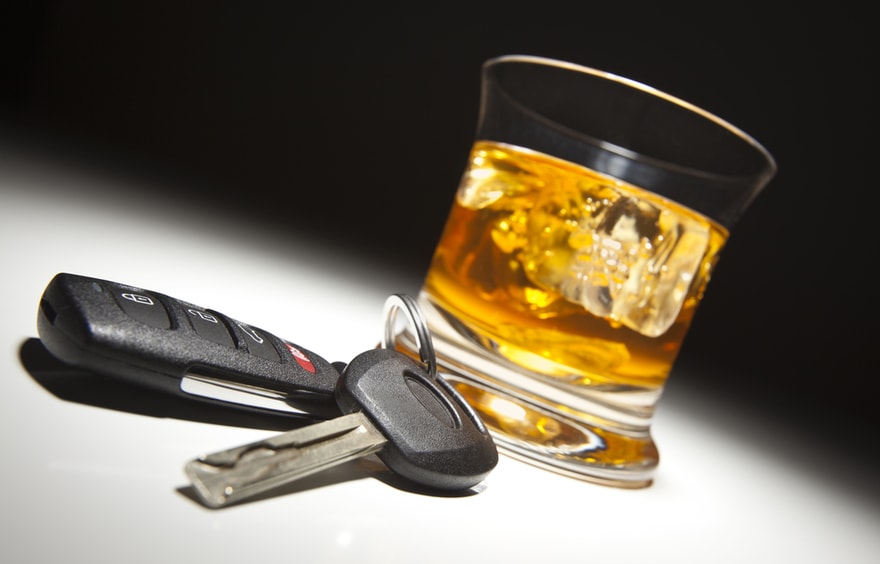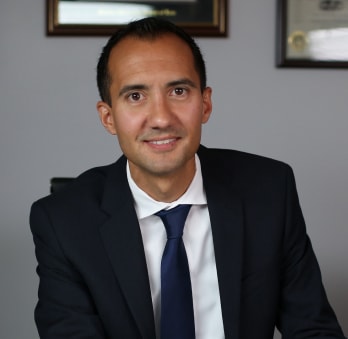
The first encounter you will have with the police if you are arrested for a Minnesota DUI will most likely be on the side of a road or perhaps in a parking lot.
The officer will most likely allege that you committed some sort of driving or traffic violation that prompted the stop of your vehicle. After stopping your vehicle, the officer will approach the driver’s side window.
If the stop is occurring during the night, the officer will most likely shine the squad car’s spotlight toward your vehicle limiting your ability to see anything behind you.
Upon approaching your vehicle, the officer will ask you to roll down your window. You do not have to roll your window all the way down.
Only crack your window enough so that you and the officer are able to hear each other and to pass your driver’s license and insurance card to the officer.
The reason why a police officer will ask you to roll your window all the way down is so that he can get a better smell of the inside of your vehicle and of your breath to determine whether he detects an odor of alcohol.
An odor of alcohol on a driver’s breath is one reason that an officer can order the driver of a vehicle out of the vehicle to perform roadside sobriety tests.
This helps establish probable cause for a Minnesota DUI arrest.
Again, do not roll your window all the way down; just crack it a bit.
The officer will then ask for your driver’s license and proof of insurance.
Hand both cards to the officer through the cracked window. The officer will then most likely make small talk by asking you where you are coming from, where you are going, what you were doing, etc. You do not have to answer his questions.
In fact, you shouldn’t say anything at all. Again, the reason the officer is asking you these questions is to determine whether he notices an alcoholic odor that might justify arresting you for Minnesota DUI. If the officer suspects you might be impaired, he will almost certainly ask you if you have been drinking tonight. Do not answer this question and absolutely do not admit to drinking if you were.
Even if you have been drinking, you do not have to answer his question and you will not get in trouble for saying no. This is the biggest reason people get arrested for a Minnesota DUI. Once a driver has admitted to drinking prior to driving, that’s all the reason the officer needs to run you through the roadside tests.
If the officer thinks you have been drinking, he will order you out of your vehicle to perform roadside sobriety tests. A common roadside sobriety test is what is called the PBT.
This is the smaller handheld breath test that an officer gives at the side of the road. After inserting the breathing tube into your mouth, the officer will most likely yell to keep blowing or blow harder.
Do not blow as hard as you can.
A heavy breath sample can produce a distorted result. Simply blow at a constant, steady breath until told to stop.
You can decline to perform any of the roadside sobriety tests; however, doing so will almost certainly result in your arrest for suspicion of Minnesota DUI.
If you refuse the roadside sobriety tests, you will most likely be placed under arrest and taken to either the police department or a hospital for further testing.
You do not have the same option to decline a test at the police department or hospital that you do at the side of your car. Refusal to take a chemical test at the police department or hospital is a separate crime apart from the DUI, and, in some cases, is an even more severe crime than the DUI itself.
After arriving at the police department or hospital, the officer will go over an Implied Consent Advisory with you.
This is sort of like a short and sweet version of your Miranda rights.
Related Posts –
- What is 3rd Degree Drug Possession in Minnesota?
- What Are the Minnesota Prostitution Laws?
- What Is the Punishment for Theft in Minnesota?
- What Are the North Dakota Marijuana Laws?
- What Is Second-Degree Sexual Conduct in Minnesota?
- What Is the Difference Between Murder and Manslaughter in Minnesota?
- What Is 5th Degree Criminal Sexual Conduct in Minnesota?
- Charged with 3rd Degree Criminal Sexual Assault in MN?
It is important to keep in mind that you have the right to talk to a Minnesota DWI attorney before deciding whether to take the test. Take advantage of this. If you tell the officer you want to talk to a Minnesota DUI lawyer, he will give you a phone and phone book and a “reasonable amount of time” to contact a Minnesota DWI lawyer.
You will not have a set time limit to contact a Minnesota DUI attorney, but the officer is required to give you a decent amount of time to try to get a hold of someone who happens to be awake.
After this, the officer will ask you if you will submit to either a blood, breath, or urine test. You do not get to choose which type of test you want to take.
The officer gets to choose which type of test he will give you.
However, if you are offered a blood test and have a fear of needles or some medical reason why you cannot give blood, then you can refuse and the officer is required by law to then offer you a urine test. You will not have the same choice if initially offered a breath test.
If offered a breath test, the officer will have you place your mouth around a tube coming from a machine and tell you to blow. Once the machine starts capturing your breath sample, it will begin to make a beeping sound to indicate it is receiving a sufficient sample.
Regardless of this, the officer will most likely be seated next to you yelling at you to blow harder, harder, harder.
You do not have to blow as hard as you can. Once you hear the machine begin to beep, try your best to maintain that level of breath until told to stop. This will help to minimize the chance the machine produces a distorted reading.
Depending on the results of your chemical test – whether blood, breath, or urine – you will either be released, required to post bail, or held for court in the next day or two.
If you provided a blood or urine sample, you will most likely be released without any charges or having to post bail, as long as you do not have a history of prior DWIs and there wasn’t an accident.
It takes about 6-8 weeks for the police to receive the result of your blood or urine test. If the result is above the legal limit of .08, notice will be sent to the local prosecuting authority.
You can then expect to receive notice of your Minnesota DUI arrest, charges and a court date in the mail, as well as the revocation notice for your driver’s license.
It is important to act right away to fight a Minnesota DUI arrest. Contact a DUI attorney as soon as you can. There are certain time limits associated with the ability to keep your driver’s license.
Contacting an attorney right away will help to keep your driver’s license.
DUIs are a highly specialized area of the law in Minnesota. You want to make sure you hire an experienced Minnesota DUI lawyer who is familiar with the ins-and-outs of Minnesota’s DUI laws and not an attorney who has handled a DUI or two for family or former clients.
A number of issues need to be investigated, beginning with the reason behind the initial traffic stop of your vehicle all the way through the type of chemical test that was administered.
The Minnesota DUI attorneys at Arechigo and Stokka are experienced Minnesota DWI attorneys. They have had a number of DUIs dismissed for clients and have also kept a number of clients’ diver’s licenses.
Contact us today for help with your Minnesota DUI.



